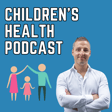
Child Development | Spotting Early Signs | Feeding Challenges w/ Theresa Alexander Inman
Theresa Alexander Inman is a highly qualified parent coach with expertise in the fields of infant toddler development, play-based interventions, behavior analysis, and mindfulness, In her signature program, she uses them as a combined treatment modality to meet the unique needs of the families she serves.
She believes that learning should be fun and involve the whole family and/or village. Theresa is also an Author (How Can I Help My Child Communicate?), International Speaker, and Trainer.
Theresa is a beacon of hope for parents seeking freedom from stress, frustration, guilt, and doubt. Through her transformative ‘Your Breakthrough Parenting Solutions' program, she creates a holistic support system that nurtures children and empowers families, fostering confidence, joy, and a renewed sense of self.
Conservatively, she has served almost 200 satisfied families and seeks to make a greater impact in the world. Helping families who have children with autism or other learning differences.
Connect with Theresa:
Website: https://www.flowcode.com/page/theresaalexanderinman
Her book How Can I Help My Child Communicate?: https://books2read.com/How-can-I-help-my-child-communicate
Tiktok: https://www.tiktok.com/@0parentingbytes0
Instagram: https://www.instagram.com/parentingcoachtheresa/
Podcast: https://podcasters.spotify.com/pod/show/theresa-alexander-inman
Christian's links:
Children's health consulting (autism, ADHD, gut dysfunction etc.): https://christianyordanov.com/childrens-health-consulting/
Get my book Autism Wellbeing Plan: How to Get Your Child Healthy: https://amzn.to/43ah6yD
My new book, How to Actually Live Longer, Vol.1: https://amzn.to/3OnZJGl
